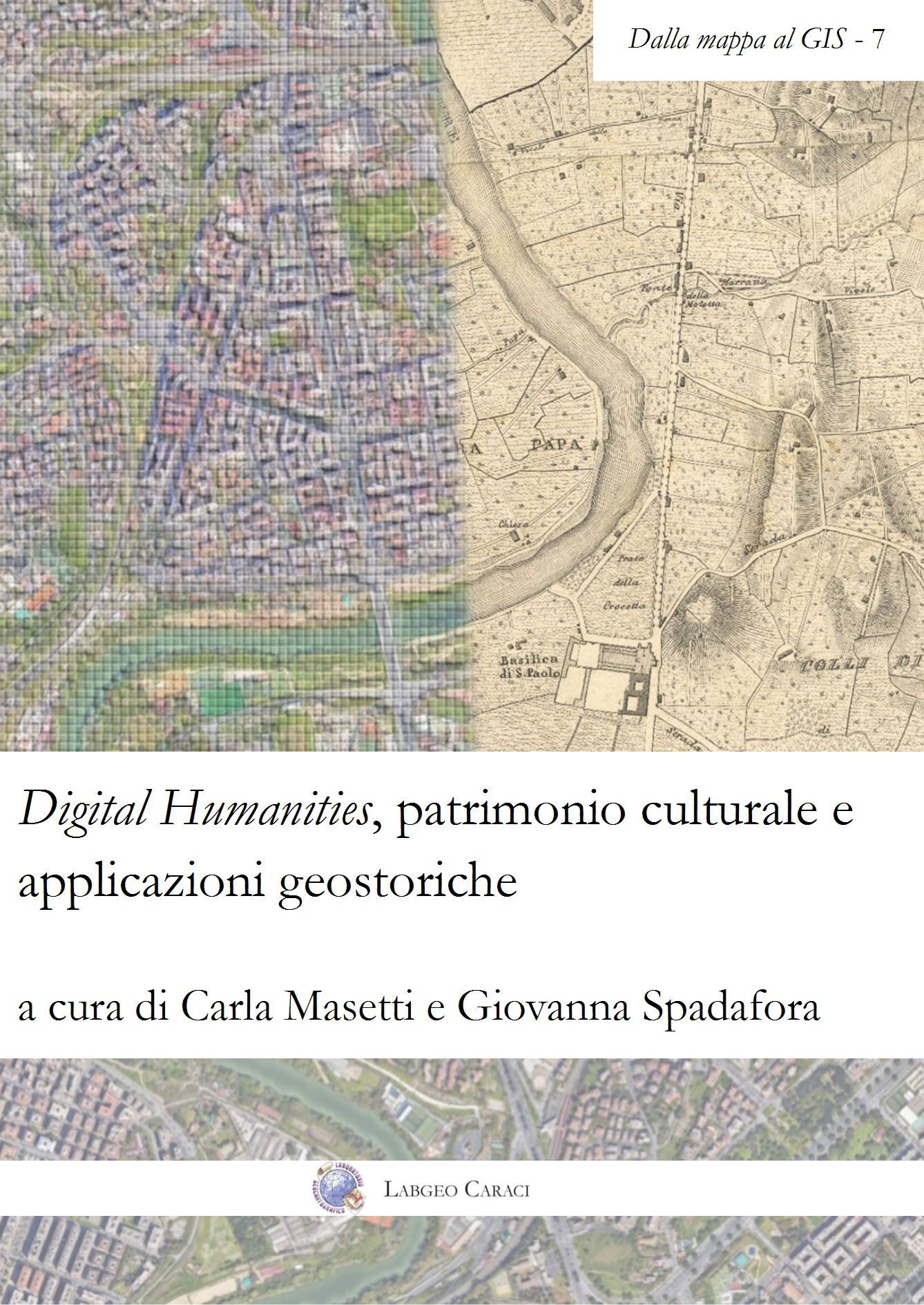Digital Humanities e fonti geostoriche: dalle carte storiche al portale cartografico
Abstract
DIGITAL HUMANITIES E FONTI GEOSTORICHE: DALLE CARTE STORICHE AL PORTALE CARTOGRAFICO – La valorizzazione delle fonti cartografiche ha costituito uno dei nodi cardine nell’ambito del processo di ricognizione, recupero e valorizzazione dei beni geocartografici conservati presso il Dipartimento di Lettere e Culture moderne dell’Università di Roma Sapienza. In particolare, le risorse cartografiche conservate, diverse per genesi, fattura e tipologia, hanno richiesto un’attenta attività di censimento, metadatazione e digitalizzazione. La cartografia digitalizzata è stata importata in ambiente di lavoro QGIS per essere sottoposta a georeferenziazione e consentirne il corretto posizionamento su carte di base fornite tramite servizio WMS. Il webGIS proposto offre una consultazione interattiva, oltre a permettere di visualizzare i metadati relativi alla risorsa stessa. Tutte le fasi di lavoro sono state svolte in adozione degli standard internazionali in merito a descrizione, digitalizzazione e condivisione sul web. Lo studio condotto mira a rendere consultabili e implementabili le conoscenze derivanti dall’attività di valorizzazione condotta in oltre un decennio di ricerche. Le carte geografiche storiche sono al tempo stesso beni culturali e fonti geostoriche le quali devono essere rese liberamente fruibili al pubblico per ragioni di studio, di ricerca e interesse personale.
Le Digital Humanities permettono di analizzare e gestire criticamente questa tradizione culturale e legarsi con il tema della valorizzazione degli oggetti museali, bibliotecari e archivistici.
DIGITAL HUMANITIES AND GEO-HISTORICAL SOURCES: FROM HISTORICAL MAPS TO THE CARTOGRAPHIC PORTAL - The enhancement of cartographic sources has been one of the pivotal points in the process of reconnaissance, recovery and enhancement of the geo-cartographic assets preserved at the Department of Modern Humanities and Cultures of the Sapienza University of Rome. In particular, the cartographic resources preserved, which differ in terms of genesis, invoice and type, required careful census, metadata and digitisation activities. The digitised cartography was imported into the QGIS work environment to undergo georeferencing and allow for its correct positioning on base maps provided through the WMS service. The proposed webGIS offers interactive consultation, as well as allowing the display of metadata related to the resource itself. All the work phases were carried out in adoption of international standards on description, digitisation and sharing on the web. The aim of the study was to make the knowledge resulting from the enhancement activity conducted over more than a decade
of research easy to find and implementable. Historical maps are both cultural heritage and geo-historical sources that must be freely available to the public for study, research and personal interest. The digital humanities make it possible to critically analyse and manage this cultural tradition and to link it with the subject of the enhancement of museum, library and archive objects.

